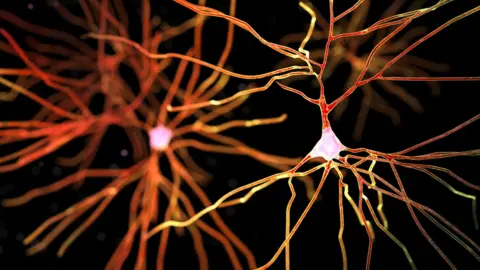New type of dementia identified
 Getty Images
Getty ImagesMillions of elderly people have a form of dementia that has been misdiagnosed as Alzheimer's disease, according to researchers.
One expert called it the most important dementia finding in years.
The condition, limbic-predominant age-related TDP-43 encephalopathy, or Late, shares similar symptoms to Alzheimer's, but it is a distinct disease, the journal Brain reports.
It may partly explain why finding a dementia cure has failed so far.
What is dementia?
Dementia is not a single disease, but is the name for a group of symptoms that include problems with memory and thinking.
There are lots of different types of dementia and Alzheimer's is said to be the most common and most researched.
 Getty Images
Getty ImagesBut up to a third of Alzheimer's in elderly people may instead be Late, says the international team of researchers, although both dementias can co-exist.
Late appears to affect the "oldest old" - people over 80 - according to the work that looked at evidence from thousands of post-mortem results.
One in five in this age group has it, meaning the public health impact of the disease will be large, say the researchers.
Unlike Alzheimer's, it tends to cause a more gradual decline in memory, they believe.
Finding a cure
Currently, there is no specific single test for dementia.
Signs of it can sometimes be seen in the brain after death.
Late appears to be linked to the accumulation of a certain protein, TDP-43, in the brain, while Alzheimer's is linked to two other brain proteins - amyloid and tau.
Scientists have been striving to find a cure for dementia, but with so many different types and causes of the disease, the goal has proved difficult.
Trials of drugs to reduce proteins in the brain that were thought to cause Alzheimer's have failed.
There have been no effective new treatments and some pharmaceutical companies have dropped out of the dementia drug race.
Having a better understanding of Late might lead to the discovery of new treatments, say the researchers.
They have written guidelines to help increase awareness and advance research into the newly defined disease.
Lead author Dr Pete Nelson, from the University of Kentucky, said: "It's been there all along obviously but we are just first recognising it.
"Alzheimer's disease is something that everyone knows about - it's a way of getting dementia - but there are different diseases as well and this disease we are calling Late is one of the most common, and so it is sort of an exciting time to begin and do research and trying to optimise and develop therapies.
"There is a lot of work to be done. This is more of a starting point than a finish point.
"There's no doubt that many people who were previously called Alzheimer's, in fact, did not have Alzheimer's."
What do other experts think?
Prof Robert Howard from University College London said: "This is probably the most important paper to be published in the field of dementia in the last five years.
"Treatment trials of drugs that are designed to work against Alzheimer's will not have any efficacy against Late and this has important implications for the choice of participants in future trials."
Prof Tara Spires-Jones, an expert in dementia at the University of Edinburgh, said: "This paper is important because we know that dementia symptoms can be caused by many underlying diseases, and it is essential to understand what causes the diseases in order to develop targeted treatments."
Dr James Pickett, from the Alzheimer's Society, said the work was "the first step towards more precise diagnosis and personalised treatment for dementia".
Dr Carol Routledge, from Alzheimer's Research, cautioned that it wasn't something that doctors would be able to diagnose in the clinic yet.
Researchers are working to find diagnostic tests and targeted treatments for different types of dementia.
